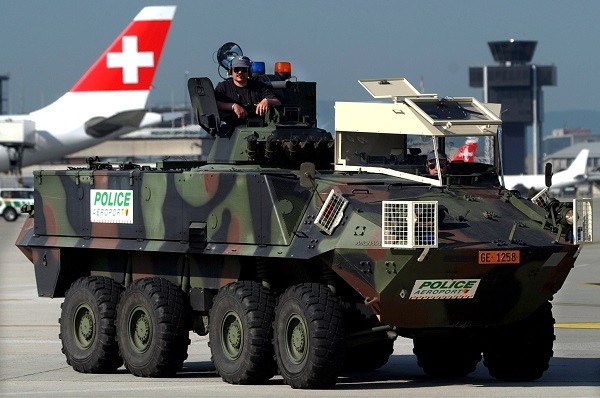After purchasing Israeli-made aircraft, the Swiss Defense Ministry apparently tested the drones in the Golan Heights, a “mistake” that contravenes Swiss foreign policy.
In 2012, 2013, and 2015, Swiss defense officials came to a site in the Golan Heights to test and train on the unarmed Hermes 900 drone. The Swiss government eventually voted to buy six of the drones in September 2015 from their manufacturer, Elbit Systems, in a deal worth over $250 million.
However, their presence in the Golan contradicted official Swiss policy. “This incident was a communication breakdown,” said a statement released by the defense ministry on Wednesday. “Those who were informed about the activities did not realize Swiss officials were not allowed to be there and those who knew about the restrictions were not informed about the planned activities,” Reuters reported.
The Golan Heights was captured by Israel in the Six Day War and although it was officially annexed in 1981, no country recognizes it as being part of the State of Israel. The UN Security Council even declared Israel’s decision to be null and void in Resolution 497. Switzerland, which has frequently acted as a broker in the Middle East, forbids its official representatives from going there “for activities related to the Israeli government or companies.”
The Swiss Defense Ministry added that the error was caught in August, and no other tests have taken place since then. All future tests, it said, would be done within the pre-1967 boundaries, with the drones due to enter service in 2020.
The purchase of the drones was not without controversy in Switzerland. Opponents had criticized the deal because, among other things, they said Israel had used the Hermes 900 in 2014’s Operation Protective Edge against Hamas in Gaza. However, Swiss Defense Minister Ueli Maurer defended the purchase, arguing that Switzerland was not buying the drones from the State of Israel but from a private company, and that they would be used only for surveillance by Swiss border guards and not as an offensive weapon.
By: Batya Jerenberg, World Israel News





